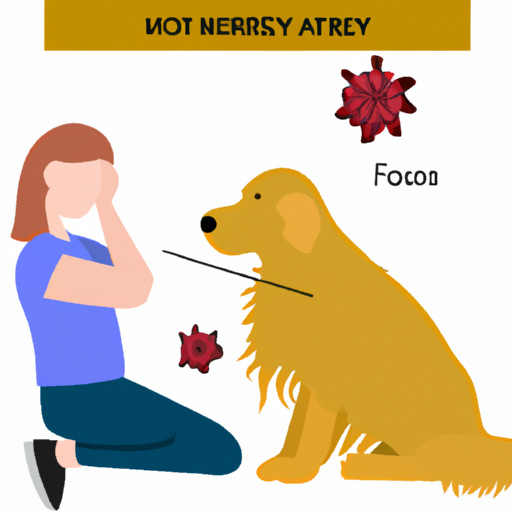As a loving caregiver, you may find it unsettling when your furry friend suddenly breaks out in hives. Hives, medically known as urticaria, are raised, red, itchy bumps on the skin that can appear suddenly and spread quickly. While hives in dogs are not life-threatening, they can cause discomfort and distress to your pet. This article will guide you through the common causes of hives and help you better understand how to manage and prevent them.
1. Allergic Reactions
Just like humans, dogs can have allergic reactions to a variety of substances. These reactions can result in hives. Here are some of the most common allergens that can cause hives in dogs:
-
Food Allergies: Certain ingredients in dog food may cause an allergic reaction in your pet. Common culprits include beef, dairy, wheat, and chicken.
-
Environmental Allergies: Pollen, dust mites, mold, and other environmental factors may also cause hives.
-
Contact Allergies: Certain substances that come into contact with your dog’s skin may trigger an allergic reaction. This includes certain types of grass, plants, and chemicals in cleaning products.
| Type of Allergy | Common Triggers |
|---|---|
| Food Allergies | Beef, Dairy, Wheat, Chicken |
| Environmental Allergies | Pollen, Dust Mites, Mold |
| Contact Allergies | Grass, Cleaning Chemicals |
2. Insect Bites and Stings
Insect bites and stings are another common cause of hives in dogs. The most common culprits are fleas, ticks, bees, and wasps. The body’s immune response to the insect’s venom or saliva can trigger hives.
3. Medication Reaction
Certain medications can cause hives in dogs. If you notice your pet developing hives after starting a new medication, contact your vet immediately. They may need to adjust the dosage or prescribe a different medication.
4. Vaccination Reaction
Vaccinations are essential for your dog’s health, but in rare cases, they can cause an allergic reaction leading to hives. This is not a reason to avoid vaccinations, but it’s something to be aware of and monitor.
5. Physical Factors
Physical factors such as heat, cold, sunlight, or pressure can also cause hives in dogs. These are known as ‘physical urticarias.’
FAQ
Q: How long do hives last in dogs?
A: Hives can last anywhere from a few hours to a few days in dogs. If they persist for longer than 24 hours, contact your vet.
Q: What can I give my dog for hives?
A: Over-the-counter antihistamines can sometimes help, but always consult with your vet before giving your pet any medication.
Q: Can I prevent hives in my dog?
A: Identifying and avoiding triggers can help, but it’s not always possible to prevent hives. Regular vet check-ups can also assist in managing your dog’s reactions.
As a caregiver, you know your dog best, and if something seems off, it most likely is. If your dog develops hives, it’s always best to consult with a vet, who can provide guidance on the best course of action.



